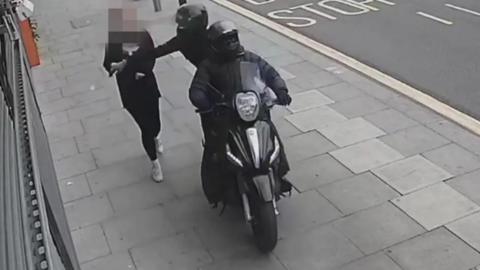But one of the main threads of the day was a clash between MPs and Mr Davis over the market for second-hand parts.
"I worry if we focus on IMEI blocking only you are going to miss the market for parts," he told the committee, to frustrations from those in attendance.
"It's clear from the mood of the committee that we don't feel that either Google or Apple have a road plan to effective phone protection which does not involve IMEIs," Labour MP Chi Onwurah said.
Apple is concerned that when devices are stolen, rather than being reused elsewhere they are instead being chopped up into component parts - like screens, processors and batteries - which can then be sold on for repairs.
"Our best protection is Activation Lock," he said.
"I understand you will take the view that it obviously mustn't be working because there are still devices being stolen. But that is the best protection."
Activation Lock is a feature which links certain iPhone or iPad components to a person's Apple ID - meaning a person must use their password to allow these parts of their device to be used in repairs.
The feature was well-received when it was announced in September as a way to deal with thieves.
But the committee wanted to focus on blocking the IMEI of a stolen phone being used elsewhere.
"It feels to a lot of people that you're dragging your feet," Conservative MP Kit Malthouse said.
But Mr Davis said he felt Activation Lock was "a major step" in disrupting the second-hand market.
"It could well be that IMEI blocking is a natural next step," he said.
"However I would want to make sure that as part of all of that the Met police continues to do traditional policing, which means sending requests to us for stolen devices, and Apple responding to those requests.
"We're not seeing that, and I think it's very important."
